We enjoy highlighting our community members’ accomplishments and are proud to share their books with you. Some were even written in a Sabbatical Home! Consider adding a few of these member-written books to your summer reading list.
Marianne Ackerman (member since 2008)
Born in Belleville, Ontario, Marianne was educated at Carleton University, the Sorbonne and University of Toronto (MA 1981). She lived in Paris in the late 1970s and moved to Montreal in 1981. From 1998 to 2004, she lived in La Roque Alric, France. She is married to Gwyn Campbell, a research professor of history at McGill University.
Mankind and Other Stories of Women
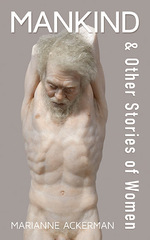
Marianne Ackerman’s second collection of stories for Guernica puts the focus on women, their ascent into selfhood, and the beauty and carnage of their journey. Literary Montreal is the setting of two stories spun around an alpha poseur, George. Picking up from the Gothic shadows of Albert Fine in Holy Fools (Guernica, 2014), Ackerman follows the lives of an Ontario farm family marked by a bloody incident they struggle to understand. Four interlocking stories plumb the secrets of one man’s sister, ex-wife, friend and mother. Sardonic and often funny, these tales follow the byways of aspiration and self-deception, casting light on all.
Piers’ Desire
 Montreal-born thriller writer Piers Le Gris is living a comfortable life of exile in Avignon, France, doted on by a beautiful older French woman, Nelly Reboul, his landlady. When seventeen-year-old Magali moves into the ancient mansion, her vitality, curiosity and tempestuous involvement with a young Arab poet draw all three into perilous intrigue. Magali’s presence jars open the door to a long-forgotten love affair in Nelly’s past, and forces Piers to do battle with yearnings he has carefully smothered under a monkish routine. Outside the confines of Rue des Griffons, he finds himself entangled in the crosscurrents of desire, swept up by the lives of three compelling women. The potent clash of spirit and flesh, a tale of love and redemption.
Montreal-born thriller writer Piers Le Gris is living a comfortable life of exile in Avignon, France, doted on by a beautiful older French woman, Nelly Reboul, his landlady. When seventeen-year-old Magali moves into the ancient mansion, her vitality, curiosity and tempestuous involvement with a young Arab poet draw all three into perilous intrigue. Magali’s presence jars open the door to a long-forgotten love affair in Nelly’s past, and forces Piers to do battle with yearnings he has carefully smothered under a monkish routine. Outside the confines of Rue des Griffons, he finds himself entangled in the crosscurrents of desire, swept up by the lives of three compelling women. The potent clash of spirit and flesh, a tale of love and redemption.
Daniel Andler (member since 2010)
As a professor emeritus at Université Paris-Sorbonne, Daniel is a philosopher of science and a cognitive scientist at Ecole normale supérieure.
La Sihouette de l’humain
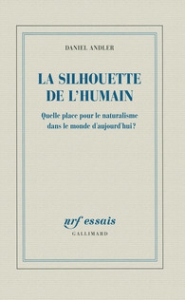 Naturalisme?
Naturalisme?
En quoi la vieille thèse philosophique qui soutient que la nature embrasse tout ce qui existe concerne-t-elle chacun d’entre nous? C’est qu’elle prend aujourd’hui la forme d’un puissant courant, né de la convergence de programmes de recherche, philosophiques ou scientifiques (portés notamment par les sciences cognitives, les neurosciences, la biologie évolutive, la génétique), qui offrent des réponses théoriques et des propositions d’action – qu’il s’agisse d’autisme ou de décrochage scolaire, de dyslexie ou de psychopathie, de persuasion sociale ou de politiques publiques, de choc des cultures ou de développement durable, de régime pénal ou d’obésité, d’inégalités sociales ou de perception du risque, de racisme ou de crimes contre l’humanité. Autant de domaines où il faut prendre des décisions, légiférer, remédier, administrer, orienter la recherche.
Ce qui semblait hier échapper par principe à une gestion «scientifique», car reposant sur les rapports entre… individus, sur l’autorité, la confiance, la délibération, la conviction intime, semble à la portée de systèmes matériels, optimisateurs «intelligents». Il y a d’autant plus d’urgence à mesurer quel rapport existe entre cette «naturalisation» technologique et le naturalisme développé par la science et l’analyse philosophique que les technologies «humanoïdes» (intelligence artificielle, robotique…) modifient profondément à la fois les conditions de la décision et son objet.
Rares sont ceux qui se donnent la peine, et les moyens intellectuels, d’aller voir au plus près, au-delà d’un rejet simpliste, cette approche naturaliste qui, s’employant à redessiner la silhouette de l’humain, va parfois jusqu’à prétendre régir notre monde. C’est l’ambition de cette enquête philosophique unique en son genre – sorte de «bilan et perspectives» du naturalisme et plaidoyer pour un usage critique.
Monique R. Balbuena (member since 2010)
Monique Rodrigues Balbuena is an Associate Professor of Comparative Literature and Jewish Studies at the Clark Honors College at the University of Oregon.
Homeless Tongues: Poetry and Languages of the Sephardic Diaspora (Stanford University Press, 2016)
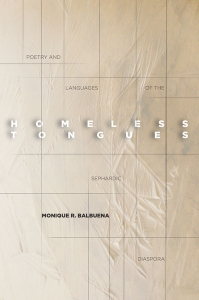 This book examines a group of multicultural Jewish poets to address the issue of multilingualism within a context of minor languages and literature, nationalism, and diaspora. It introduces three writers working in minor or threatened languages who challenge the usual consensus of Jewish literature: Algerian Sadia Lévy, Israeli Margalit Matitiahu, and Argentine Juan Gelman. Each of them—Lévy in French and Hebrew, Matitiahu in Hebrew and Ladino, and Gelman in Spanish and Ladino—expresses a hybrid or composite Sephardic identity through a strategic choice of competing languages and intertexts. Monique R. Balbuena’s close literary readings of their works, which are mostly unknown in the United States, are strongly grounded in their social and historical context. Her focus on contemporary rather than classic Ladino poetry and her argument for the inclusion of Sephardic production in the canon of Jewish literature make Homeless Tongues a timely and unusual intervention.
This book examines a group of multicultural Jewish poets to address the issue of multilingualism within a context of minor languages and literature, nationalism, and diaspora. It introduces three writers working in minor or threatened languages who challenge the usual consensus of Jewish literature: Algerian Sadia Lévy, Israeli Margalit Matitiahu, and Argentine Juan Gelman. Each of them—Lévy in French and Hebrew, Matitiahu in Hebrew and Ladino, and Gelman in Spanish and Ladino—expresses a hybrid or composite Sephardic identity through a strategic choice of competing languages and intertexts. Monique R. Balbuena’s close literary readings of their works, which are mostly unknown in the United States, are strongly grounded in their social and historical context. Her focus on contemporary rather than classic Ladino poetry and her argument for the inclusion of Sephardic production in the canon of Jewish literature make Homeless Tongues a timely and unusual intervention.
Finalist for the 2016 National Jewish Book Awards in the category of Sephardic Culture, sponsored by the Jewish Book Council.
Charlotte Bell (member since 2014)
Charlotte Bell has been practicing yoga since 1982 and began teaching in 1986. She has established and taught regular classes along Utah’s Wasatch Front, California, and Hawaii.
Rich Roots
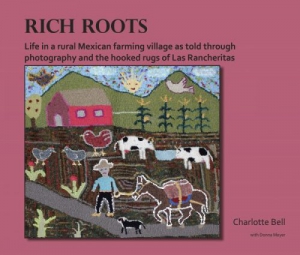 Rich Roots life in rural Mexico. Come with me on a journey. I want to show you another face of Mexico, the human face that few travelers ever see up close or can even truly imagine. I want to lead you, with words and pictures, into the Mexican campo, the rural countryside outside the colonial cities and glittery resorts that define Mexico for so many people. For it is in the campo, with its tiny pueblos and farming villages, that the true heart of Mexico beats, where the roots of the people go deep into the earth and their blood goes back for centuries beyond memory.
Rich Roots life in rural Mexico. Come with me on a journey. I want to show you another face of Mexico, the human face that few travelers ever see up close or can even truly imagine. I want to lead you, with words and pictures, into the Mexican campo, the rural countryside outside the colonial cities and glittery resorts that define Mexico for so many people. For it is in the campo, with its tiny pueblos and farming villages, that the true heart of Mexico beats, where the roots of the people go deep into the earth and their blood goes back for centuries beyond memory.
Over the last 20 years, I’ve been privileged to meet, know and grow to love many individuals and families in these rural villages. They’ve reminded me of what we all have in common and what is most important in life–family, community, tradition…and they taught me the importance of deep, rich roots to anchor us in place, hold us safe, and make us whole. Let me introduce you to these people and these places, to the hands that work, to the children’s smiles and the colors of vibrant imaginations.
To understand any culture, we must see it from the inside, as much as it’s possible for an outsider to do that. As Mexicans say, “El que no no sabe, es como el que no ve…. The one who does not understand is like one who is blind.” Let my photographs and words open your hearts and minds to the world of our Mexican neighbors so we can all understand each other better. I hope you’ll enjoy the trip.
Tears From the Crown of Thorns
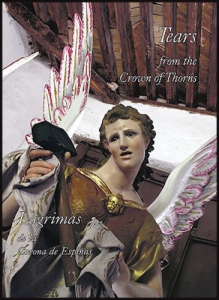 In the high Sierra Madre Mountains of north central Mexico in the state of Guanajuato is the 400-year-old colonial town of San Miguel de Allende. It is the location of some of the most spectacular events during Semana Santa (Holy Week) in all Latin American. There is little written history of the origins of these events. They were created long ago and stories have been told through word of mouth. The customs, the processions and the statues tell the story. It all began in the 1700s with Padre Luis Felipe Neri de Alfaro, the visionary priest of Atotonilco.
In the high Sierra Madre Mountains of north central Mexico in the state of Guanajuato is the 400-year-old colonial town of San Miguel de Allende. It is the location of some of the most spectacular events during Semana Santa (Holy Week) in all Latin American. There is little written history of the origins of these events. They were created long ago and stories have been told through word of mouth. The customs, the processions and the statues tell the story. It all began in the 1700s with Padre Luis Felipe Neri de Alfaro, the visionary priest of Atotonilco.
Written in both Spanish and English, the book touches the heart and fascinates the eye with exotic locations such as a storeroom filled with angels or the midnight procession of three shrouded statues lit by candlelight and carried through the night accompanied by 5000 pilgrims.
“My purpose is to give you a glimpse into one piece of Mexico. I feel that our southern neighbor is a barely discovered jewel with its intriguing and complicated culture, rich history, and enormous natural beauty.”
Jennifer Callaghan (member since 2011)
Jennifer Callaghan writes from personal experience on sustaining a severe traumatic brain injury and its aftermath. She describes in poignant detail her struggles, obstacles, and frustrations, as well as the triumphs and gains over a 16-year period.
My Brain and I
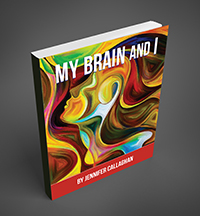 This is Jennifer’s account of her long road to recovery after she sustained a severe brain injury as a passenger in a catastrophic five-car pile-up. She explains how she felt inside: ‘lost and panic-stricken inside my head.’ She was using up ‘my all-too-sparse energy’ in the most mundane tasks: making lunch, handling money, returning phone calls. Her new, disrupted sleep patterns made everything worse as she woke every hour through the night, making her constantly exhausted.
This is Jennifer’s account of her long road to recovery after she sustained a severe brain injury as a passenger in a catastrophic five-car pile-up. She explains how she felt inside: ‘lost and panic-stricken inside my head.’ She was using up ‘my all-too-sparse energy’ in the most mundane tasks: making lunch, handling money, returning phone calls. Her new, disrupted sleep patterns made everything worse as she woke every hour through the night, making her constantly exhausted.
Jennifer is totally honest in showing how lacking in empathy for others she was as she focused on learning how to live again. She struggles with getting lost in her own neighborhood, with totally unexpected outbursts of anger, feelings of inadequacy and loss of meaning. She recounts having to learn how to read and write again, how to walk in a straight line unaided, how to get involved again in social activities and how to drive: all things she was no longer able to do. The biggest adventure of all becomes (unbelievably) simply crossing a road, all of which captures the reader. Her account of the ‘new identity’ imposed on her by her brain injury, that of a person who was: ‘slow, forgetful, dependent on others, totally unable to function like the people around me,’ is riveting. In examples of her inability to cope with life with a brain injury, Jennifer recounts the enormous difficulty of taking a train journey; the challenge of eating out at a restaurant, when, ‘out of extreme frustration, I yelled and totally lost my temper, until everyone in the restaurant was listening.’ She found relief and support when she joined a brain injury support group, and a sense of meaning finally when she became a volunteer. As you read, you will find yourself walking through her life with her.
Anita Clair Fellman (member since 2010)
Fellman has a Ph.D in History from Northwestern University, and spent her academic career first at Simon Fraser University in British Columbia and later at Old Dominion University in Norfolk, Virginia. In retirement, she continues to divide time between Vancouver and Norfolk.
Little House, Long Shadow
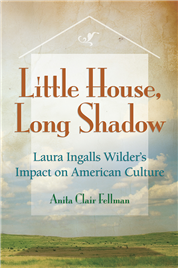 Little House, Long Shadow: Laura Ingalls Wilder’s Impact on American Culture was issued in paperback by the University of Missouri Press in 2016. Beyond their status as classic children’s stories, Laura Ingalls Wilder’s Little House books play a significant role in American culture that most people cannot begin to appreciate. Millions of children have sampled the books in school; played out the roles of Laura and Mary; or visited Wilder homesites with their parents, who may be fans themselves. Yet, there is even more to this magical series with its clear emotional appeal: a covert political message that made many readers comfortable with the resurgence of conservatism in the Reagan years and beyond.
Little House, Long Shadow: Laura Ingalls Wilder’s Impact on American Culture was issued in paperback by the University of Missouri Press in 2016. Beyond their status as classic children’s stories, Laura Ingalls Wilder’s Little House books play a significant role in American culture that most people cannot begin to appreciate. Millions of children have sampled the books in school; played out the roles of Laura and Mary; or visited Wilder homesites with their parents, who may be fans themselves. Yet, there is even more to this magical series with its clear emotional appeal: a covert political message that made many readers comfortable with the resurgence of conservatism in the Reagan years and beyond.
Fellman examines how this beloved body of children’s literature found its way into many facets of our culture and consciousness—even influencing the responsiveness of Americans to particular political views. Because both Wilder and her daughter, Rose Wilder Lane, opposed the New Deal programs being implemented during the period in which they wrote, their books reflect their use of family history as an argument against the state’s protection of individuals from economic uncertainty. Their writing emphasized the isolation of the Ingalls family and the family’s resilience in the face of crises and consistently equated self-sufficiency with family acceptance, security, and warmth.
Fellman argues that the enormous popularity of these books—abetted by Lane’s overtly libertarian views—helped lay the groundwork for a negative response to big government and a positive view of political individualism, contributing to the acceptance of contemporary conservatism while perpetuating a mythic West. Fellman explores the continuing presence of the books—and their message—in modern cultural institutions from classrooms to tourism, newspaper editorials to Internet message boards.
Little House, Long Shadow shows how ostensibly apolitical artifacts of popular culture can help explain shifts in political assumptions. Since its initial publication in 2008, this book has contributed significantly to the growing awareness of the political subtext of the Little House books. It is a pioneering look at the dissemination of books in our culture that expands the discussion of recent political transformations—and suggests that sources other than political rhetoric have contributed to Americans’ renewed appreciation of individualist ideals.
Bill Homewood (member since 2004)
Bill Homewood has given poetry workshops for the Poetry Society and poetry recitals at most major festivals worldwide. He has twice held the Eminent Chair in Theatre Studies at Florida Atlantic University, and has been made Honorary Citizen of Austin, Texas.
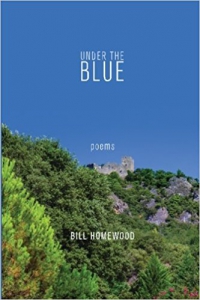 Under the Blue
Under the Blue
Selected Poems 1975 – 2015 by actor, writer and poet Bill Homewood “…a controlled carelessness which makes me very envious, and a swinging gaiety which is quite authentic.” The late Poet Laureate Sir Stephen Spender, on Bill Homewood’s poetry.
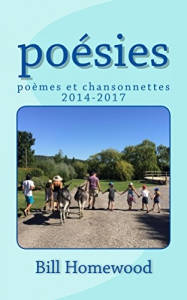 Poésies: Poèmes et Chansonnettes
Poésies: Poèmes et Chansonnettes
Une selection de poemes de Bill Homewood, ecrivain et acteur anglais, dont le générique étendu comprend THEATRICAL LETTERS (Marginalia Press 1995) ; UNDER THE BLUE (Mimosa Books 2015) ; des scenarios innumérables commandés de théâtre, de cinéma et de télévision ; des articles de magazines/journaux et des poèmes.
Estelle Kohler (member since 2004)
Estelle began acting in her native South Africa, whereas an ingénue she toured and played the major stages in Johannesburg and Capetown, before embarking on her long career as a leading lady with the Royal Shakespeare Company, beginning with her famous Juliet to Ian Holm’s Romeo. She later played Juliet again to Timothy Dalton’s Romeo, winning the Plays & Players (Olivier) Award.
Saki the Blue-eyed Rottweiler
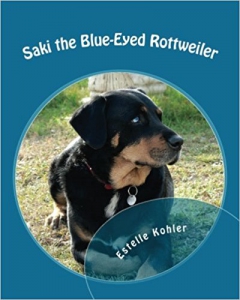 This is the true story of Saki the Blue-Eyed Rottweiler’s escape from a world of gangsters and dog-fighting, and her many subsequent adventures in the foothills of the Cévennes in Southern France – always on the run, shot at by hunters and scavenging for food. Though little more than a puppy, she survives a harsh winter alone on the bleak, scrubby desert called the Garrigue. At times it seems she will never find that miracle she deserves – the best of all possible homes. But despite her cruel start in life, Saki charms her way into the hearts of all she meets…
This is the true story of Saki the Blue-Eyed Rottweiler’s escape from a world of gangsters and dog-fighting, and her many subsequent adventures in the foothills of the Cévennes in Southern France – always on the run, shot at by hunters and scavenging for food. Though little more than a puppy, she survives a harsh winter alone on the bleak, scrubby desert called the Garrigue. At times it seems she will never find that miracle she deserves – the best of all possible homes. But despite her cruel start in life, Saki charms her way into the hearts of all she meets…
Related: Home Rental, Home Exchange, & Vehicle Use Agreement Guidelines
R. Launier (member since 2014)
Professor, retired, from the Department of Psychology at Santa Barbara City College. He taught classes in general psychology, personality theory, abnormal psychology, child development, social psychology, life-span development, and research methods. He is actively involved with Emotology Q-Deck to determine patterns of emotional life and to derive a measure of stress balance, WISE student success, where students succeed by applying personal insight, meta-cognitive reflection, psychological feedback, know-how and knowledge on the path to wisdom and success, as well as other student-learning-outcomes projects.
Culturing Emotional Wisdom with the EQD Q-sort Educational Games
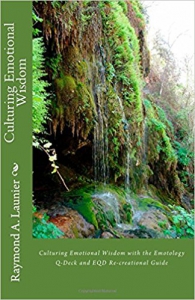 This is a book that summarizes my work with college students on the development and use of a special deck of cards in which each card describes a different emotion/passion/significant feeling. The hearts and diamonds describe the more pleasant emotions; the clubs and spades describe the more stressful emotional states. As a psychologist, the emergence and understanding of emotional life is central to understanding and helping the individual person.
This is a book that summarizes my work with college students on the development and use of a special deck of cards in which each card describes a different emotion/passion/significant feeling. The hearts and diamonds describe the more pleasant emotions; the clubs and spades describe the more stressful emotional states. As a psychologist, the emergence and understanding of emotional life is central to understanding and helping the individual person.
Eunice Lipton (member since 2013)
Eunice Lipton is the author of Alias Olympia: A Woman’s Search for Manet’s Notorious Model and Her Own Desire and, more recently, French Seduction: An American’s Encounter with France, Her Father, and the Holocaust. She lives in New York and Paris.
A Distant Heartbeat
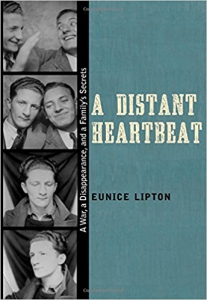 On May 20, 1938, a young man from the Bronx informs his parents that he is leaving for the Catskills to begin his new job as a waiter. Instead, he sails for Europe to join the Abraham Lincoln Brigade in the Spanish Civil War, the opening round in the fight against Hitler and Mussolini. The man, Dave Lipton―the author’s uncle―sends letter after letter home detailing his hopes and begging for forgiveness. He never receives a reply.
On May 20, 1938, a young man from the Bronx informs his parents that he is leaving for the Catskills to begin his new job as a waiter. Instead, he sails for Europe to join the Abraham Lincoln Brigade in the Spanish Civil War, the opening round in the fight against Hitler and Mussolini. The man, Dave Lipton―the author’s uncle―sends letter after letter home detailing his hopes and begging for forgiveness. He never receives a reply.
Decades later, Eunice Lipton stumbles upon clues for this silence, uncovering details of Dave’s exhilarating political life in New York, his shuttered romantic life, and his deep friendship with another volunteer. A Distant Heartbeat tells a tale of passion and heroism, centered on a fierce competition between brothers, a packet of missing letters, and the unforeseen results of family betrayal.
Vayu Naidu (member since 2016)
Dr.Vayu Naidu’s work with street storytelling in India and concert performance internationally celebrates 25 years of study in Indic and world oral traditions.
As an AHRC (Arts and Humanities Research Council) Post Doctoral Creative and Performing Arts Fellow in the Department of Theatre Studies at the University of Kent, Canterbury, she consolidated a method of collating selected oral literatures in genealogically traditional performance, where musical instruments are used as accompaniment, as well as existing practitioners in contemporary variations.
The Sari of Surya Vilas
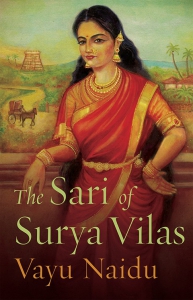 In her new novel, Vayu Naidu tells the poignant story of a woman finding her voice against the backdrop of family secrets, betrayals, and promises. In a compelling narrative, rich with period detail, The Sari of Surya Vilas traces the silenced voices of marginalized people across Madras and the Deccan, who nevertheless left a mark on history—woven, told and sung, worn and passed on, bearing the residue of their passionate experiences.
In her new novel, Vayu Naidu tells the poignant story of a woman finding her voice against the backdrop of family secrets, betrayals, and promises. In a compelling narrative, rich with period detail, The Sari of Surya Vilas traces the silenced voices of marginalized people across Madras and the Deccan, who nevertheless left a mark on history—woven, told and sung, worn and passed on, bearing the residue of their passionate experiences.
Sita’s Ascent-The Subaltern Sari
Tiger Books, December 2016
The location of coastal villages near Chennai and Mahabalipuram has inspired the setting of this historical fiction novel set in the Madras Presidency. The novel focuses on the role of women, weaving and the power of homespun stories in regaining an identity during colonial rule.
David Papineau (member since 2014)
David Papineau is a British academic philosopher, born in Como, Italy. He works as Professor of Philosophy of Science at King’s College London and the City University of New York Graduate Center having previously taught for several years at Cambridge University where he was a fellow of Robinson College.
Knowing the Score
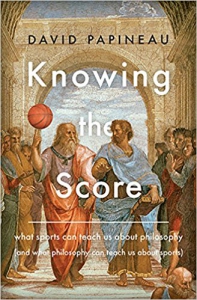 Why do sports competitors choke? How can Roger Federer select which shot to play in 400 milliseconds? Should foreign-born footballers be eligible to play for England? Why do opposing professional cyclists help each other? Why do American and European golfers hate each other? Why does test cricket run in families? Why is punching tolerated in rugby but not in soccer? These may not look like philosophical questions, but David Papineau shows that under the surface they all raise long-standing philosophical issues.
Why do sports competitors choke? How can Roger Federer select which shot to play in 400 milliseconds? Should foreign-born footballers be eligible to play for England? Why do opposing professional cyclists help each other? Why do American and European golfers hate each other? Why does test cricket run in families? Why is punching tolerated in rugby but not in soccer? These may not look like philosophical questions, but David Papineau shows that under the surface they all raise long-standing philosophical issues.
Steve Rook (member since 2016)
Steve Rook has been a student-focused University Careers Adviser for twelve years and has also managed his own successful recruitment company. His extensive professional experience in the UK and Australia, combined with years spent traveling the world, has informed his unique approach to career planning.
The Graduate Career Guidebook
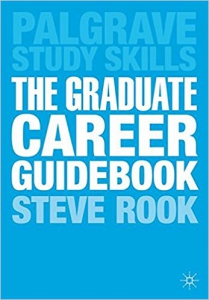 At last, a practical, positive approach to finding the perfect job – ideal for any student or graduate.
At last, a practical, positive approach to finding the perfect job – ideal for any student or graduate.
In The Graduate Career Guidebook, Steve Rook explains how to find your dream role, regardless of whether you have a career in mind or no idea what you want to do after university.
His inspiring approach divides the career journey into manageable steps and helps you navigate each stage, from deciding what you want, to gaining work experience, networking effectively, conducting a job hunt, writing a knock out CV, impressing at interview and getting the job.
The text will guide you through the career planning process so you can find a successful and fulfilling future. It includes:
• Guidance-based exercises to help you reflect on your personal strengths and find opportunities that are a great match
• Useful and inspirational case studies from students, graduates, and employers
• Sections on entrepreneurship and starting your own business
Like your own personal career coach, Steve will motivate you to think broadly and creatively about your opportunities and his expert advice will help you make your dream a reality.
Work Experience, Placements and Internships
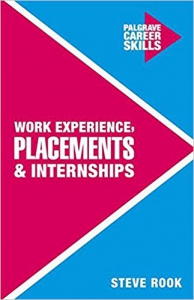 Through pedagogical techniques, self-assessment and personal reflection, this book provides students and graduates with a comprehensive guide to work experience, placements, and internships. It offers essential support for every stage of the experience journey, from finding appropriate opportunities, to using the experience to further a career.
Through pedagogical techniques, self-assessment and personal reflection, this book provides students and graduates with a comprehensive guide to work experience, placements, and internships. It offers essential support for every stage of the experience journey, from finding appropriate opportunities, to using the experience to further a career.
Related: Talk the Talk: 35 Basic Phrases in German
Alexander Rosenberg (member since 2016)
Alexander Rosenberg is an American philosopher and the R. Taylor Cole Professor of Philosophy at Duke University. He is also a novelist.
Autumn in Oxford: A Novel
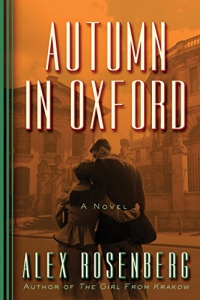 After being blacklisted for having communist sympathies as a student twenty years before, Pulitzer Prize-winning historian Tom Wrought escapes America’s Cold War climate to teach at Oxford. There, he falls in love with Liz Spencer, a beautiful married woman. When Liz’s husband is pushed in front of a train in the London Underground, Tom is immediately arrested for the murder. Scotland Yard is convinced it has its man, as he had means, motive, and opportunity.
After being blacklisted for having communist sympathies as a student twenty years before, Pulitzer Prize-winning historian Tom Wrought escapes America’s Cold War climate to teach at Oxford. There, he falls in love with Liz Spencer, a beautiful married woman. When Liz’s husband is pushed in front of a train in the London Underground, Tom is immediately arrested for the murder. Scotland Yard is convinced it has its man, as he had means, motive, and opportunity.
Certain of his innocence, Liz hires a young solicitor, Alice Silverstone, to defend Tom. But they discover that Tom’s former secret work as an American spy made him a number of powerful enemies. Russian intelligence, British counterespionage, and even the FBI all may have reason to frame him. If Liz and Alice can find out who is behind the murder, they stand a chance of freeing Tom, but doing so puts all their lives at risk.
Simran Sethi (member since 2005)
Simran Preeti Sethi is an Indian American journalist. Her career started in the media industry and transitioned to academics where she taught on the subject of journalism and global social justice. Focused on food sustainability and social change, she is widely lauded for her contributions to the ecological sustainability of the planet. Sethi is the creator and host of chocolate podcast The Slow Melt.
Bread, Wine, Chocolate
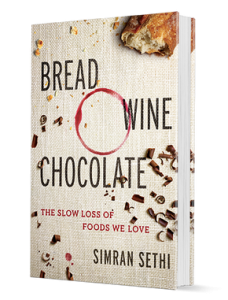 Named one of the best food books of the year by Smithsonian, “Bread, Wine, Chocolate: The Slow Loss of Foods We Love” is the story of changes in food and agriculture told through bread, wine, coffee, chocolate and beer and the lens of flavor.
Named one of the best food books of the year by Smithsonian, “Bread, Wine, Chocolate: The Slow Loss of Foods We Love” is the story of changes in food and agriculture told through bread, wine, coffee, chocolate and beer and the lens of flavor.
In the last century, we have lived – and eaten – through the most dramatic shifts ever experienced in food and agriculture. While much of this is invisible, what we do know is that food is beginning to look and taste the same, whether you’re strolling through a San Francisco farmers market, at a Midwestern potluck – or a McDonald’s in India. Ninety-five percent of the world’s calories now come from only 30 species, and a closer look at America’s cornucopia of grocery store options reveals that our foods are primarily made up of only corn, wheat, rice, palm oil, and soybeans. The food itself – the most delicious, diverse varieties of food – is being lost, slowly and irrevocably.
But it doesn’t have to be this way.
Join award-winning journalist Simran Sethi as she travels from wild coffee forests in Ethiopia to cocoa plantations of Ecuador, from the brewery to the bakery and the temple, to meet scientists, farmers, chefs, winemakers, beer brewers, coffee roasters and chocolate connoisseurs to discuss the reasons for this loss and learn what it means to experience food in a whole new way, tasting foods more deeply through each one of our senses in order to savor – and save – the foods we love.
Léa-Catherine Szacka (member since 2013)
Assistant Professor at the Oslo School of Architecture and Design (AHO) and member of the Oslo Centre for Critical Architectural Studies, Léa-Catherine Szacka is an architect, critic, and doctor in history and theory of architecture (Bartlett School of Architecture, 2011). Szacka’s work focuses on the history of architecture exhibitions and the history and theory of postmodern architecture.
Exhibiting the Postmodern
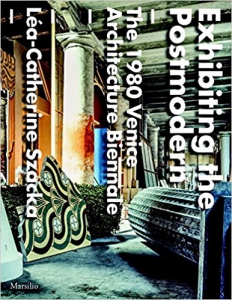 Exhibiting the Postmodern traces the origins and significance of the First International Architecture Exhibition of the Venice Biennale. Situating the 1980 exhibition The Presence of the Past against the larger historical backdrop in which architecture exhibitions appear, and considering their proliferation in the postmodern era, this book claims that the exhibition, beyond heralding a shift in the history of curating, marked both the beginning of the end, and the end of the beginning of the postmodern turn in architecture. Looking at the institutional changes, exhibition techniques and exhibition spaces, as well as the discourses and controversies between advocates of modern and postmodern architecture, this book narrates the development of architectural exhibitions as a ‘genre’ of cultural manifestations, while expanding on both the history of the Venice Biennale – and, more generally, of Italian architecture in the 1970s – and the history of postmodernism. It also reveals how the 1980 Venice Architecture Biennale announced a changing relationship between the worlds of art and architecture, and the consequent transformation of the architectural product as an end object.
Exhibiting the Postmodern traces the origins and significance of the First International Architecture Exhibition of the Venice Biennale. Situating the 1980 exhibition The Presence of the Past against the larger historical backdrop in which architecture exhibitions appear, and considering their proliferation in the postmodern era, this book claims that the exhibition, beyond heralding a shift in the history of curating, marked both the beginning of the end, and the end of the beginning of the postmodern turn in architecture. Looking at the institutional changes, exhibition techniques and exhibition spaces, as well as the discourses and controversies between advocates of modern and postmodern architecture, this book narrates the development of architectural exhibitions as a ‘genre’ of cultural manifestations, while expanding on both the history of the Venice Biennale – and, more generally, of Italian architecture in the 1970s – and the history of postmodernism. It also reveals how the 1980 Venice Architecture Biennale announced a changing relationship between the worlds of art and architecture, and the consequent transformation of the architectural product as an end object.
Related: 10 Reasons to Take an Unpaid or Paid Sabbatical


